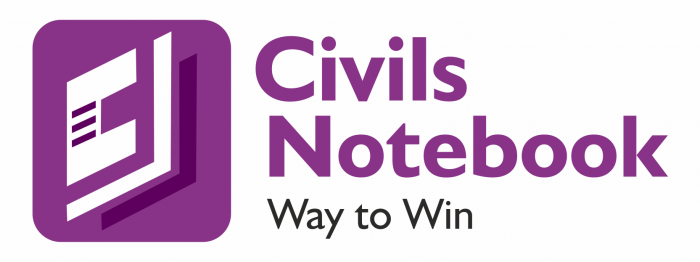NSCN(IM) to resume peace talks with Centre
About NSCN
- The National Socialist Council of Nagaland (NSCN) was formed on January 31, 1980 by Isak Chisi Swu, Thuingaleng Muivah and S.S. Khaplang opposing the ‘Shillong Accord’ signed by the then NNC (Naga National Council) with the Indian government.
- The outfit aims to establish a ‘Greater Nagaland’ and its manifesto is based on the principle of Socialism for economic development and a spiritual outlook – ‘Nagaland for Christ’.
- Two major factions of NSCN include NSCN (K), led by S. S. Khaplang; and NSCN (I-M), led by Isak Chishi Swu and Thuingaleng Muivah.
- Drug trafficking from Myanmar is reported to be a major source of income for the NSCN-IM, and it also reportedly engages in extortion, bank robberies and other criminal pursuits to obtain finance. In addition, the outfit generates funds through international mobilization.
Lumpy skin disease spreads among cattle
Lumpy skin disease spreads among cattle through insects and contaminated food and water
What is the Lumpy Skin Disease (LSD)?
- It is a highly infectious viral disease that affects all breeds of cattle and water buffalo.
- It is caused by a virus called the Capripoxvirus and is genetically related to the goatpox and sheeppox virus family.
- It has emerged as a threat to livestock worldwide.
Origin and Spread:
- Historically, LSD disease remained confined to Africa, where it was first discovered in 1929.
- But in recent years, its geographical spread has expanded beyond the endemic areas. It was first reported in the Asia and Pacific region in 2019 in North West China, Bangladesh and India.
What is the main cause of LSD?
- It is caused by infection of cattle or water buffalo with poxvirus Lumpy skin disease virus (LSDV).
Vectors:
- LSD is transmitted to cattle and water buffalo mainly through vectors such as blood-feeding insects such as biting flies, mosquitoes, and ticks.
- It can also be spread through direct contact between animals via secretions and excretions such as saliva. Contaminated water and feed can also spread the disease
Net direct tax kitty crosses ₹7 lakh crore
- Net direct tax collections as on Saturday stood at ₹7,00,669 crore, compared with ₹5,68,147 crore as of September 17, 2021, with corporate taxes constituting little over a half of the kitty at ₹3,68,484 crore.
- The personal income tax and the securities transaction tax (STT) have yielded ₹3.3 lakh crore.
Taxation in INDIA
- The taxation system in India is such that the taxes are levied by the Central Government and the State Governments.
- Some minor taxes are also levied by the local authorities such as the Municipality and the Local Governments.
- To run the government and manage the affairs of a state, money is required. So the government imposes taxes in many forms on the incomes of individuals and companies.
Classification of Taxes
- Broadly taxes are divided into two categories:
- Direct Taxes
- Indirect Taxes
Direct Taxes
- A direct tax can be defined as a tax that is paid directly by an individual or organization to the imposing entity (generally government).
- A direct tax cannot be shifted to another individual or entity.
- The individual or organization upon which the tax is levied is responsible for the fulfillment of the tax payment.
- The Central Board of Direct Taxes deals with matters related to levying and collecting Direct Taxes and formulation of various policies related to direct taxes.
- A taxpayer pays a direct tax to a government for different purposes, including real property tax, personal property tax, income tax or taxes on assets, FBT, Gift Tax, Capital Gains Tax, etc.
Indirect Taxes
- The term indirect tax has more than one meaning.
- In the colloquial sense, an indirect tax such as sales tax, a specific tax, value-added tax (VAT), or goods and services tax (GST) is a tax collected by an intermediary (such as a retail store) from the person who bears the ultimate economic burden of the tax (such as the consumer).
- The intermediary later files a tax return and forwards the tax proceeds to the government with the return. In this sense, the term indirect tax is contrasted with a direct tax which is collected directly by the government from the persons (legal or natural) on which it is imposed
World’s 3rd and India’s first university of forestry set to open in Telangana
- The Telangana legislative assembly approved the University of Forestry (UOF) Act 2022 on Tuesday.
- The ‘University of Forestry (UOF) will be the first of its kind in the country. With only Russia and China having forest universities in the world, globally, this will be the third university of forestry
First Forest University in India: Aims
- The University will also network and partner with similar institutions to create synergies in learning.
- The University will promote action research by providing comprehensive training to farmers.
- The objectives of the University will be to produce quality forestry professionals for conservation and sustainable management of forest resources and to promote research and develop appropriate methods for propagation of plantation crops to meet the demand of industries.
- The University will also work to develop agro-forestry models suitable for various agroecological conditions in addition to traditional forestry operations to reduce pressure on natural forests, and economic upliftment of farming communities.
- Telangana Government has planted 83 crore saplings under the flagship program ‘Telangana Ku Haritha Haram”
ICC Player of the Month honours for August
- Zimbabwe’s Sikandar Raza (Male) and Australia’s Tahlia McGrath(Female) honoured with ICC Player of the Month honours for August
The Padmaja Naidu Himalayan Zoological Park (PNHZP) in West Bengal’s Darjeeling has been adjudged the best zoo in the country
About Padmaja Naidu Himalayan Zoological Park
- Padmaja Naidu Himalayan Zoological Park (also called the Darjeeling Zoo) is a 67.56-acre (27.3 ha) zoo in the town of Darjeeling in the Indian state of West Bengal.
- The zoo was opened in 1958, and an average elevation of 7,000 feet (2,134 m), is the largest high altitude zoo in India.
- It specializes in breeding animals adapted to alpine conditions, and has successful captive breeding programs for the snow leopard, the critically endangered Himalayan wolf and the red panda.
- The zoo attracts about 300,000 visitors every year.
- The park is named after Padmaja Naidu (1900–1975), daughter of Sarojini Naidu. The zoo serves as the central hub for Central Zoo Authority of India’s red panda program and is a member of the World Association of Zoos and Aquariums.
Pranav Anand becomes India’s 76th Grandmaster in chess
- Pranav also claimed the the U-14 Open gold end with 9 points from 11 rounds, a day after fulfilling the requirement to become India’s 76th Grandmaster.
- 15-year-old Pranav Anand is from Bengaluru
Delhi police become India’s first police force to make collection of forensic evidence mandatory
Delhi Police has become the first police force in the country to make collection of forensic evidence mandatory in crimes punishable by more than six years. The order was issued on Tuesday hours after Union Home Minister Amit Shah visited the Police Headquarters.
Key Points related to Collection of Forensic Evidence
- The order came into force after Home Minister Amit Shah pushed at Zonal Council Meeting.
- In the Zonal Council Meeting, Mr. Amit Shah informed that the government was going to overhaul the British-era Indian penal code.
- The changes in making the collection of forensic evidence compulsory in criminal cases punishable was one of the initial steps.
- Home Minister Amit Shah emphasized the fact that custodial torture has roots in colonial India, however, the conviction of a criminal can be achieved based on forensic evidence.
- The Delhi police order also suggests that the force has its own ‘mobile crime team van’, in each district.
- The forensic Mobil van will be allotted to each district to provide scientific and forensic assistance on the spot.
Election commission of India launched BLO e-patrika
BLO e-Patrika
- BLOs are the direct links of the Commission with the people.
- They are the primary source of information for every voter across the length and breadth of the country.
- The BLO e-Patrika is released to ensure a cascading information model for a better informed and motivated Booth Level Officer.
- The themes of the bimonthly e-Patrika include subjects related to EVM-VVPAT Training, IT application, special summary revision, Minimum SVEEP Activities at polling booths, Postal Ballot facilities, accessible elections, Electoral Literacy Clubs, Unique voter awareness initiatives, and National Voters Day.
About Election commission of India
- The Election Commission of India is an autonomous constitutional authority responsible for administering Union and State election processes in India.
- The body administers elections to the Lok Sabha, Rajya Sabha, and State Legislative Assemblies in India, and the offices of the President and Vice President in the country.

